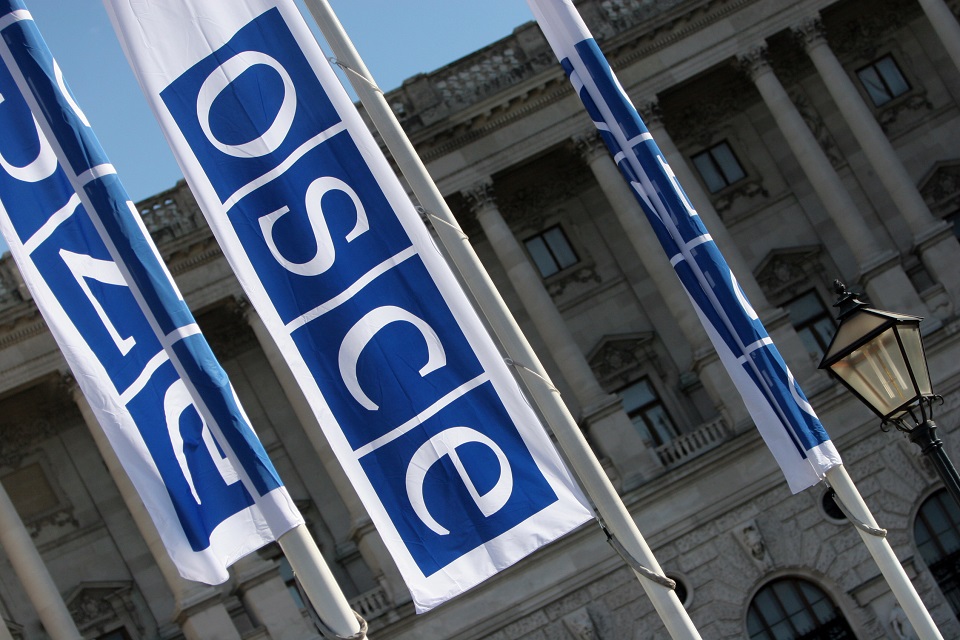OSCE's Director of the Office for Democratic Institutions and Human Rights: UK response
Ambassador Neil Bush responds to the report of Director of ODIHR, Mr Mecacci, at the OSCE Permanent Council.

Madam Chair, I wish to thank the Director of the OSCE Office for Democratic Institutions and Human Rights (ODIHR), Mr Mecacci, for his presentation. Matteo – your comprehensive comments highlight the important and extensive support that ODIHR provides to all OSCE participating States in implementing our human dimension commitments.
You referred to the practical challenges that ODIHR has faced over the last year as a result of COVID-19. ODIHR staff’s fortitude and dedication to their roles in the face of the pandemic has been commendable. The annual report’s list of activities during 2020 is a clear demonstration of the staff’s flexibility, resilience and commitment to ODIHR’s extensive mandate. Thank you on behalf of my delegation to Ingibjörg Gísladóttir and Katarzyna Gardapkhadze for leading the Office throughout 2020.
Of particular note has been ODIHR’s ability to continue to assist participating States through election observation missions. Health and travel restrictions have obviously impacted on the scale of observation missions, specifically the numbers of short term observers that could be safely deployed. Nevertheless, it is commendable that ODIHR still managed to observe and assess sixteen elections during 2020. Being able to deploy observation missions in such difficult circumstances has been important. It has provided reassurance that, even in times of crisis, the OSCE continues to prioritise our shared values around democracy, good governance and the rule of law.
Critically, the observations and recommendations that flow from ODIHR’s election monitoring reports have continued to provide independent advice to help ensure us participating States live up to our commitments - dating back to Copenhagen in 1990 – to hold periodic, genuine, free and fair elections. As and when we - hopefully - exit the pandemic, we look forward to ODIHR transitioning back to more normal observation missions in terms of structures and the numbers of observers deployed.
We continue to support ODIHR’s election observation methodology, which recognises an election is a process and considers the key elements of participating States’ electoral systems, including the effectiveness and impartiality of the election administration, the legislative framework, the nature of campaigns (including the media environment), and the protection of fundamental civil and political rights. We believe that strengthening our democratic institutions and practices is a continuous process, and ODIHR’s clear recommendations to each country help all of us improve our electoral processes. They also provide a useful starting point to inform ODIHR’s needs assessments for future election observation missions, helping ensure each of our individual democracies can be supported appropriately, and in a way that builds on past successes and addresses previous failings.
We agree also with your wider comments about the political challenges posed by COVID-19. Participating States must ensure that pandemic-related restrictions are temporary, proportionate to the threat we face, and only used when strictly necessary. As we exit the pandemic, the advice and assistance of your Office will be important in ensuring we all continue to honour the full range of our human dimension commitments.
It’s also important that, having exceptionally cancelled last year’s Human Dimension Implementation Meeting (HDIM), ODIHR work closely with the Chair in Office to ensure HDIM can be held this year. Regardless of the circumstances, HDIM needs to be organised in a way that safeguards the unique characteristics of the event, specifically the opportunities it provides to civil society from across the OSCE region.
Finally, COVID-19 has not been the only recent challenge to democracy, human rights and fundamental freedoms across the OSCE region. Discussions in the Permanent Council over recent months have highlighted growing concerns about some participating States failing to live up to their OSCE commitments.
Against that wider challenging backdrop, we offer our full support for ODIHR in continuing to play an active role in supporting us, participating States, to honour our OSCE commitments. This includes: promoting the principles of democracy; building stronger democratic institutions; strengthening the rule of law; and ensuring adherence to human rights and fundamental freedoms such as the freedom of assembly and association. We support you continuing to implement your mandate in the impartial and transparent manner you have demonstrated. And we support your emphasis on specific, targeted activities, including assistance for parliaments and courts, protection of human rights defenders, and, by turning “Words into Action” to encourage tolerance and non-discrimination.
Madam Chair, in the year ahead, the UK will be steadfast in our support for ODIHR. We are grateful for the Office’s work, which continues to provide lasting benefits to our region. Again, thank you Matteo, and thank you Chair.